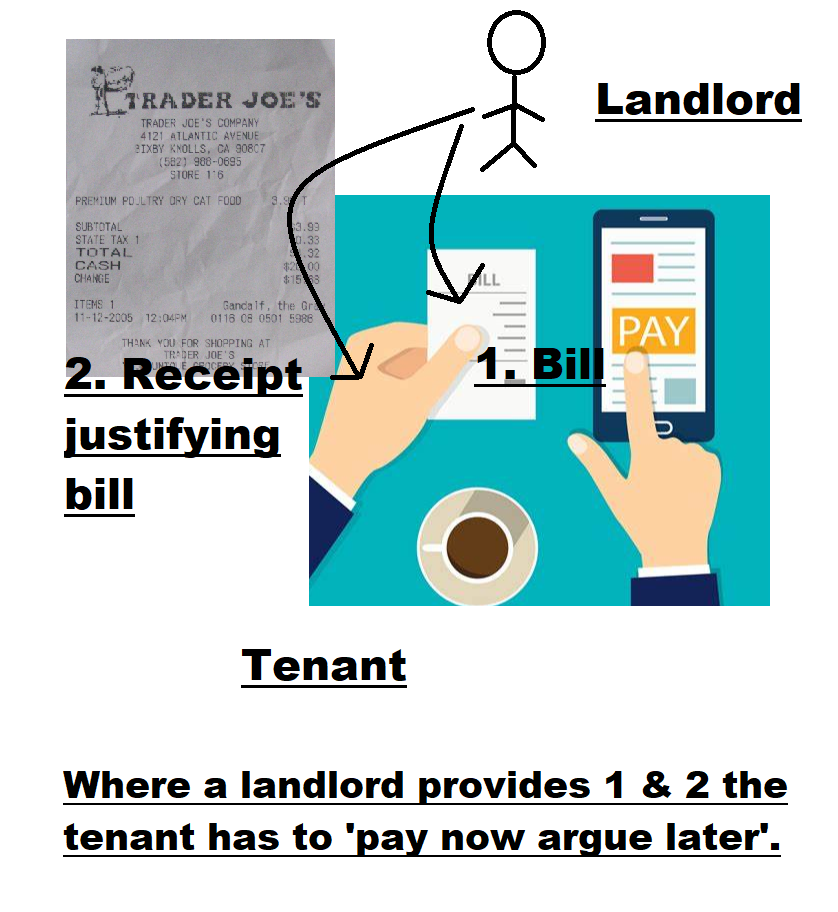Sara & Hossein Asset Holdings Ltd v Blacks Outdoor Retail Ltd [2023] UKSC 2
Citation:Sara & Hossein Asset Holdings Ltd v Blacks Outdoor Retail Ltd [2023] UKSC 2
Rule of thumb:If your landlord/factor/property manager gives you a massive bill for maintenance costs of the common areas, can you inform them you are not paying this? No, not if the landlord/factor/property factor provides you with the bill from a valid licensed contractor and that is your fair share. If the landlord/factor/property manager does this, the onus is then on the home-owner to provide the Court with independent expert evidence showing that either (a) the work was not needed, or (b) it was massively above market rates, and if they do not provide this evidence then they have to pay the bill.
Background facts:The basic facts of this case were that Sara Investments owned the building on Liverpool Street which there were around 8 or so tenants in. Sara incurred maintenance costs on the building of £400,000. Sara therefore sent Black’s Outdoor Retail a bill of £50,000 in property maintenance costs. Sara sent all receipts proving that the costs had been incurred on the building and they also sent an account showing all the mathematics of the bills adding up. Black’s balked at this bill. They informed Sara that they were not paying this and wanted to know how on earth they could have run up a bill of that size. They informed them that they were not paying until they had professional evidence from a surveyor that these costs were warranted.
Parties argued:The matter then went to Court and this case invoked the principle of ‘onus of proof’ & ‘reversal of the onus of proof’ in commercial landlord & tenant agreements for service charges on the common areas. Sara argued that they had fulfilled their obligations under contract – they affirmed that they were not required to obtain independent expert reports from land surveyors about costs needed – all they had to do was prove the expenses had been incurred on the building so there was no ‘manifest error’ or ‘fraud’, and show the sums added up were correct so there was no ‘mathematics’ mistake. Black’s argued that for giant bills like this one then there had to be some kind of prior notice and some kind of explanation of how on earth that had been run up.
Court held:The Court found in favour of Sara. The Court stated that sara had done all they had to do as there were no manifest errors as the work had indeed been done by legitimate contractors on the building, and there were no mathematical mistakes in the bill. The Court explained that this meant the onus of proof switched to Black’s as the tenant to prove the work done was not reasonable. The Court stated that the bill prima facie was a valid one, and so the Court affirmed that if Black’s wanted to argue that any part of it was unreasonable, then they were the one who had to obtain a surveyor’s report proving that the work was unreasonable and unnecessary, or indeed case-law, and if they could not prove this, then they were legally obliged to pay the bill. In other words, the Court stated that Black’s owed the £50k unless, subject to Black’s right to prove or make legal arguments that the work done was unreasonable.
(It is worth noting that Lord Briggs dissented. Lord Briggs dissented and believed that for big service, significantly bigger than usual, then there either has to be a vote or the landlord has to obtain an independent professional surveyors’ report proving they are justified, with ‘pay now, argue later’, only applying to standard & smaller bills and not big bills).

Ratio-decidendi:
‘In summary, the certification provision should be interpreted as being conclusive as to the service charge “sum payable by the tenant” but not as to the underlying liability for the service charge. The tenant is entitled to bring a claim seeking repayment of a cost which it is contended had been improperly charged. It is a form of “pay now, argue later” provision, a contractual arrangement which is commonly found. Adopting an iterative approach, this interpretation is consistent with the contractual wording, it enables all the provisions of the leases to fit and work together satisfactorily and it avoids surprising implications and uncommercial consequences’, Lord Hamblen at 57.
Warning: This is not professional legal advice. This is not professional legal education advice. Please obtain professional guidance before embarking on any legal course of action. This is just an interpretation of a Judgment by persons of legal insight & varying levels of legal specialism, experience & expertise. Please read the Judgment yourself and form your own interpretation of it with professional assistance.

